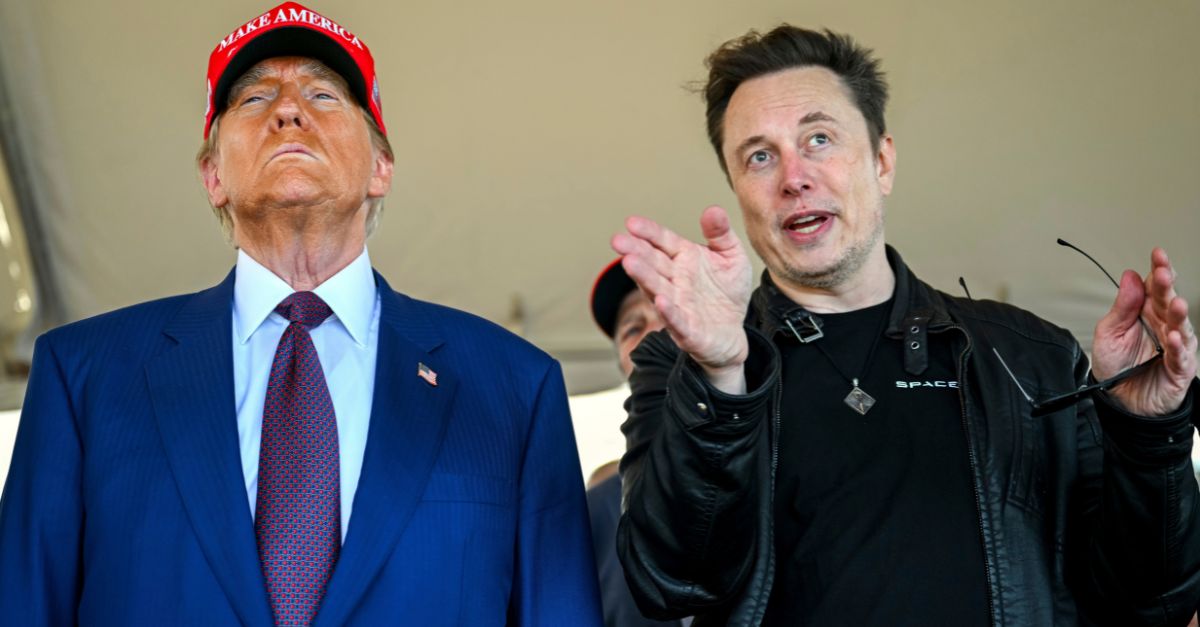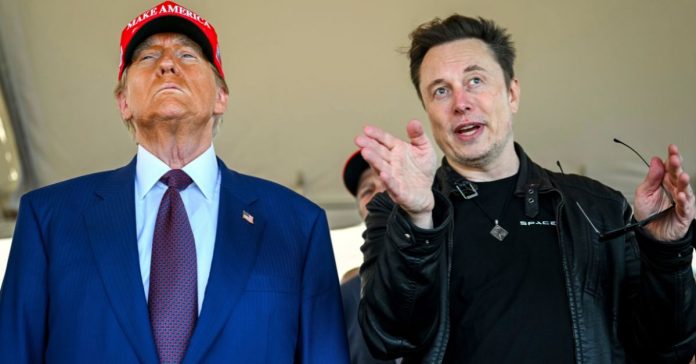
President-elect Donald Trump listens to Elon Musk as he arrives to watch SpaceX’s mega rocket Starship lift off for a test flight from Starbase in Boca Chica, Texas, Nov. 19, 2024 (Brandon Bell/Pool via AP, File).
A federal judge on Monday ruled that the Trump administration’s attempt to seize control of the U.S. Institute of Peace earlier this year was an “unlawful” power grab that led to “illegitimately-installed leaders” being put in place who “lacked legal authority” to fire people — but did it anyway.
“The President second-guessed the judgment of Congress and President Reagan in creating USIP 40 years ago, and the judgment of every Congress since then … in appropriating funds to USIP, when he deemed this organization to be ‘unnecessary” three months ago,” wrote U.S. District Judge Beryl Howell in a 102-page memorandum opinion which declared the actions taken by government officials “null and void” as of Monday.
Along with the opinion, Howell in an order granted USIP’s motion for summary judgment and denied the government’s cross-motion for summary judgment.
The Department of Government Efficiency (DOGE) carried out the “illegal takeover” of the USIP building in Washington, D.C., in mid-March, according to officials who worked there and members of Congress. George Moose, the institute’s former president, was allegedly fired the week before it happened as DOGE preceded the takeover with attempts to “eliminate” institute staff — including board members — and other agencies involved in foreign assistance work.
USIP filed a complaint for declaratory and injunctive relief on March 18, and then a motion for summary judgment on April 4.
Trump and his “subordinates,” Powell wrote in her ruling Monday, “used brute force and threats of criminal process to take over USIP’s headquarters, despite being cautioned that this organization did not fall within the Executive branch and its leadership was not subject to the President’s unilateral Executive branch removal power. This Administration then went even further, taking severe actions to dissemble USIP, including terminating its appointed Board members, its expert management, its dedicated staff and contractors located in both Washington, D.C. and around the world, and dispersing its assets and headquarters building. These actions against USIP were unlawful.”
The “unlawful” actions undertaken “at the direction of the President to reduce USIP to its ‘statutory minimums,’” Howell wrote — which she noted included “the removal of USIP’s president, his replacement by officials affiliated with DOGE, the termination of nearly all of USIP’s staff, and the transfer of USIP property to the General Services Administration (GSA)” — were “effectuated by illegitimately-installed leaders who lacked legal authority to take these actions, which must therefore be declared null and void.”
A trio of former board chairs called on Congress in a letter on May 7 to “defend USIP from elimination and to continue the decades-long tradition of bipartisan support for the Institute.”
The letter, which was obtained by Law&Crime, said: “Given the actions of the last month, we must again appeal to the body that first gave the Institute life, and request that Congress reenergize its tradition of bipartisan support for USIP. Even victory in the courts will be hollow if the Institute does not have the backing of lawmakers to pick up the pieces and get back to its important work. We call on Congress to do the right thing in the interests of preventing war and building peace.”
Howell noted Monday how USIP ultimately exercises no executive branch power under the constitution, but it does operate through research, educational teaching and scholarship in the “sensitive area of global peace,” according to the judge.
Congress chose to strike “a careful balance” between political accountability and “partisan independence and stability,” Howell said, and the constitution makes it clear that a president’s authority can only extend as far as Article II allows it, per the judge.
Even then, “Article II does not grant him absolute removal authority over his subordinates, under current binding case law precedent,” according to Howell.
“Outside of Article II, he has little constitutional authority to act at all,” she said. “The President’s efforts here to take over an organization outside of those bounds, contrary to statute established by Congress and by acts of force and threat using local and federal law enforcement officers, represented a gross usurpation of power and a way of conducting government affairs that unnecessarily traumatized the committed leadership and employees of USIP, who deserved better.”

